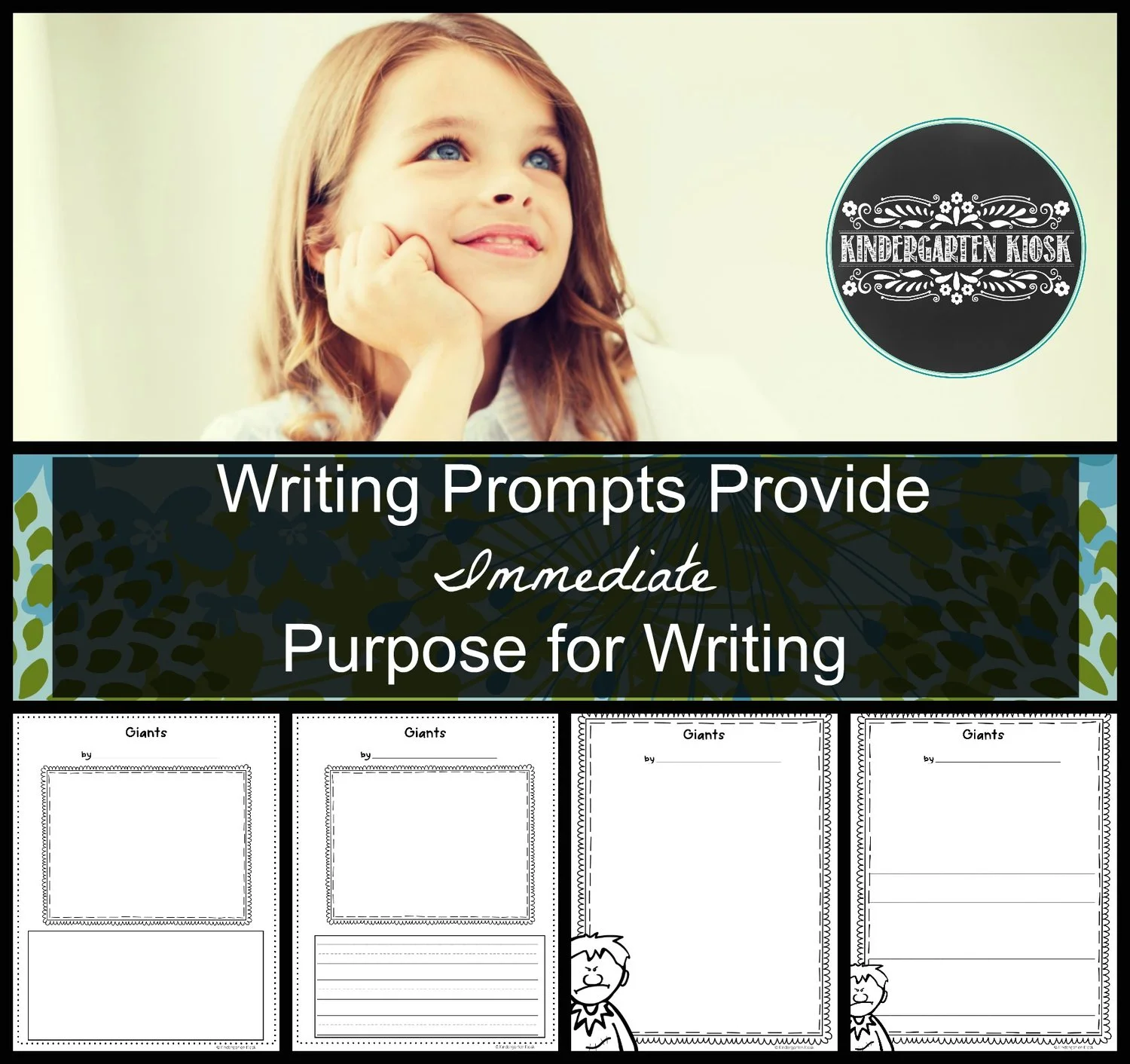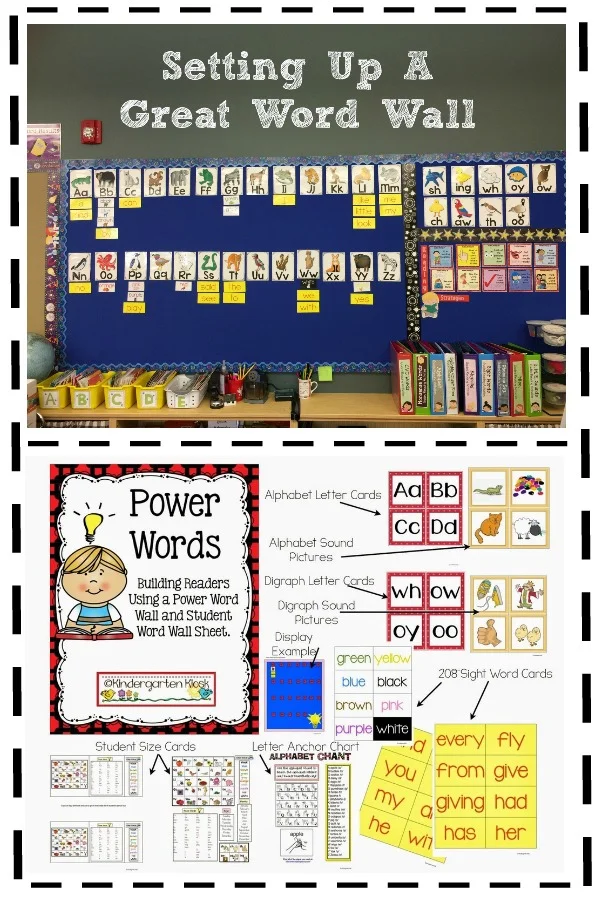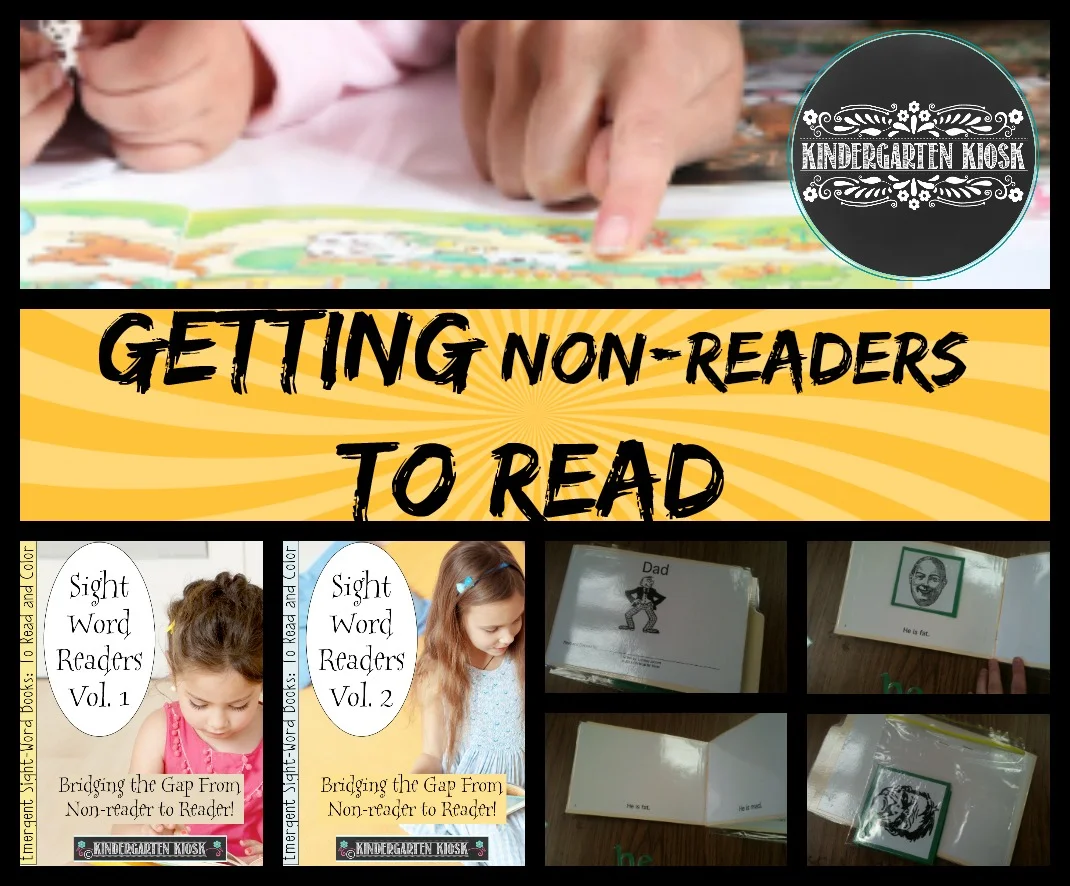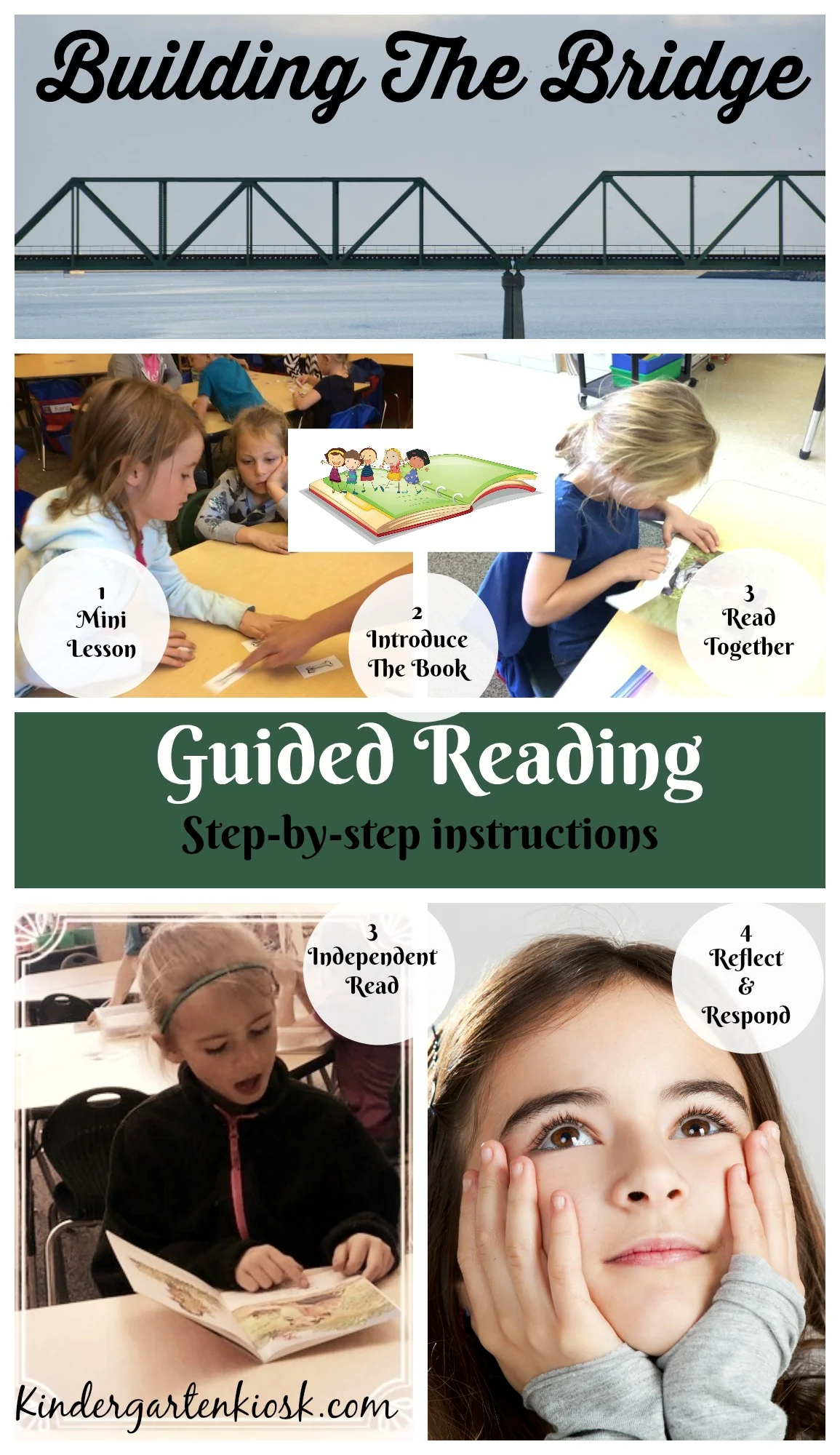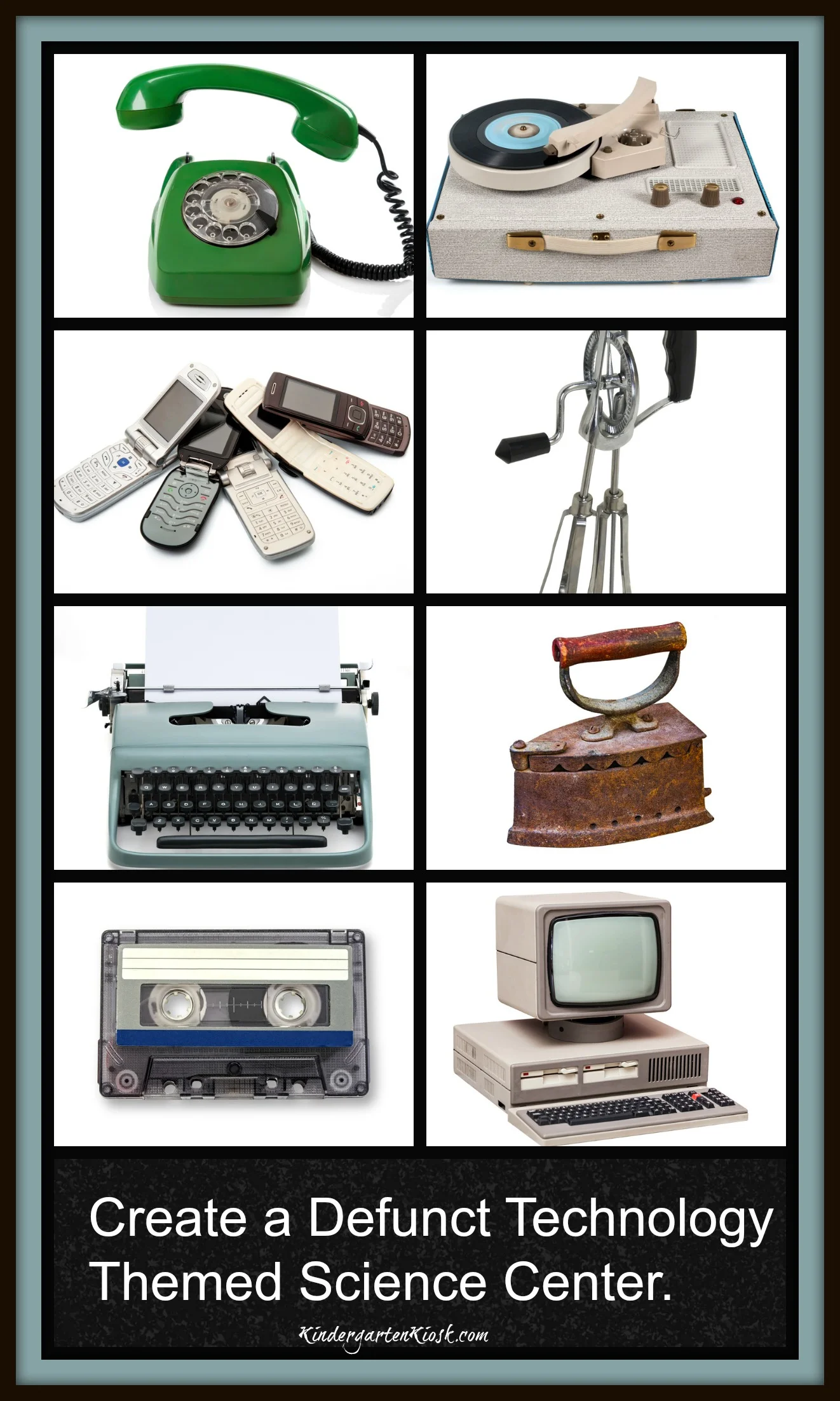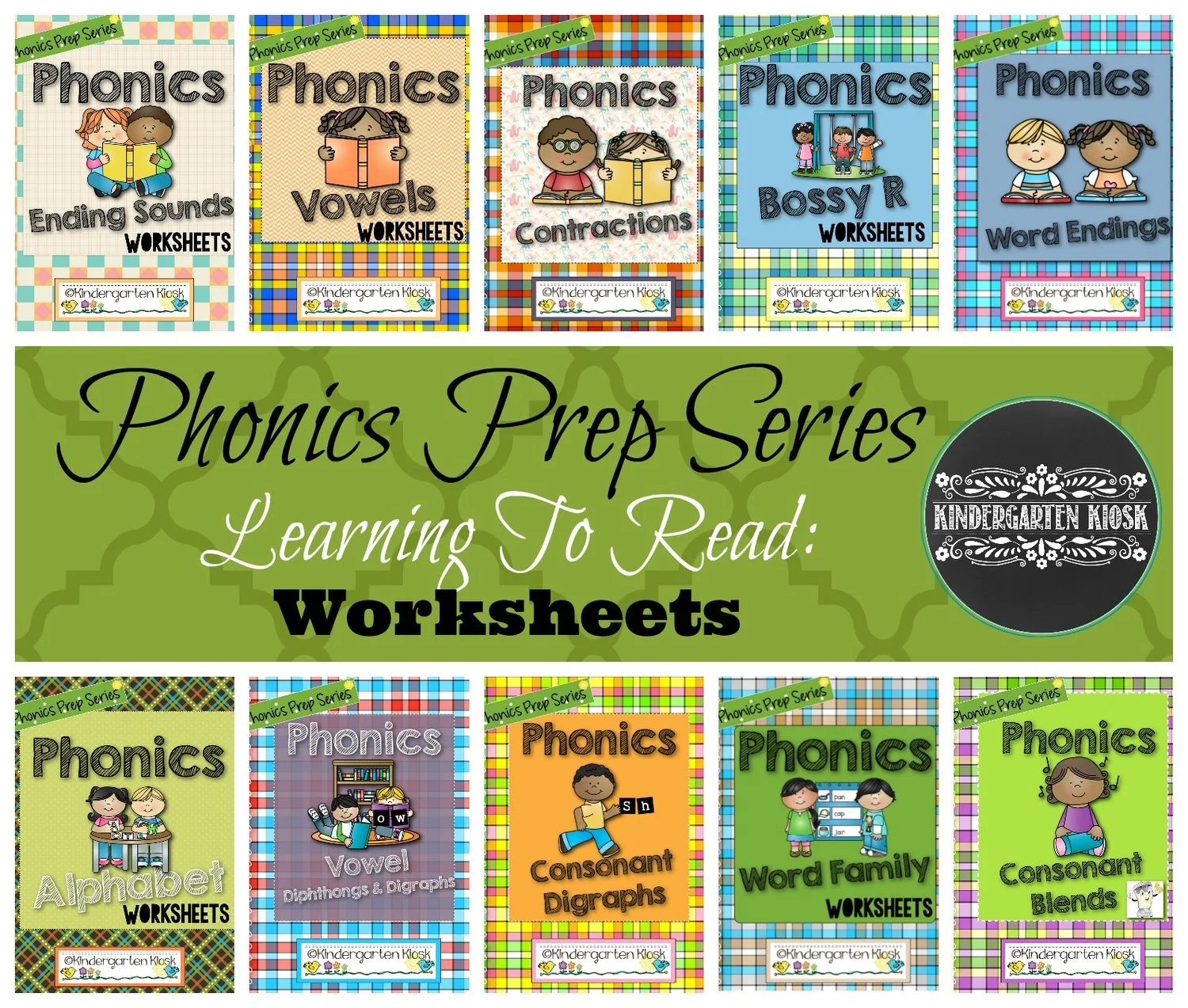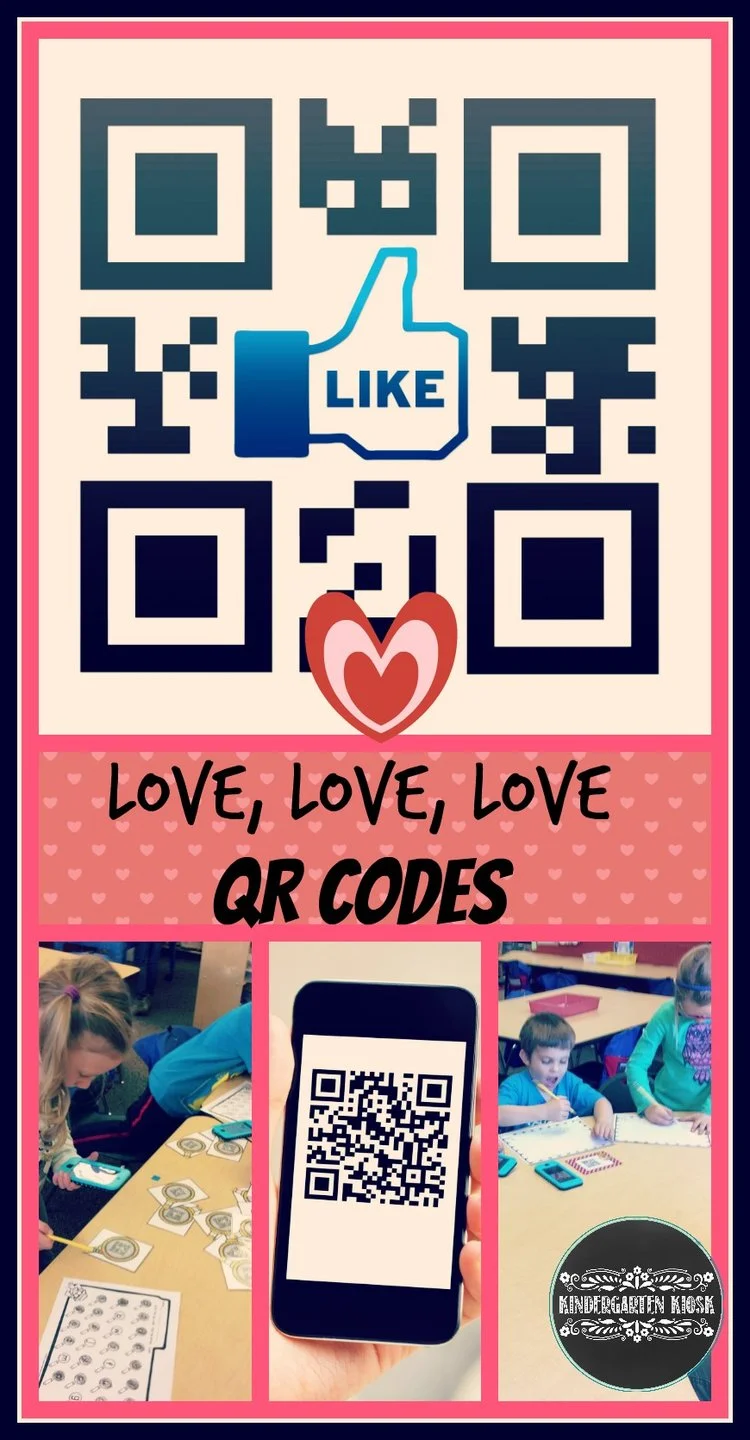I received a set of 6 paint Kwikstix Thin Stix from The Pencil Grip Company to review. I liked them so much, that I just ordered a large set for my classroom, from amazon! These thin sticks are able to reach the small spaces that my regular size Kwickstix couldn't reach. I love these stick! They are easy to use, vibrant colors, and not messy at all! Perfect for young children.
Read MoreGuided writing is a time when the teacher provides guidance, mini-lessons, and scaffolded support to move students within their zone of proximal development (ZPD). This type of writing is based on the works of Vygotsky (1979). Children are encouraged to solve their own problems with teacher assistance.
Read MoreOne of the best ways to satisfy the need for writing daily is by using writing prompts. Using prompts is an easy way to keep students engaged and excited about writing. They help prevent writer’s block, inspire creative and independent thinking, and give students a level of comfort when asked to take risks.
Read MoreThe last semester of the kindergarten year should be spent developing independence, moving from guided writing to independent writing.
Independent writing is the end goal of modeled, shared, structured, interactive, and scaffold or guided writing. As students learn the tools of self-expression and gain confidence in their mastery of writing conventions, they will become independent writers, and love the process. To optimize this move to independence, provide students with purposeful anchor charts.
Read Moren addition to working with numbers, kindergarten students should also be introduced to measurement and data. As students work to meet three standards of Measurement and Data, they note measurable attributes such as length and weight, make comparisons, as well as sort and categorize information. Through exploration in these areas students gather, organize, analyze, and interpret information about the world around them.
Read MoreYou've stopped in to visit your child's classroom. Despite their young ages, diverse needs, and boundless energy the teacher has all of the children in her classroom engaged and learning. It's kind of amazing to watch and you're impressed.
Read MoreA Word Wall is a collection of words that are easily visible in the classroom. This wall provides a dictionary of sorts for those high frequency words that generally break phonics rules or appear regularly in print. This wall provides support for students, enabling them to become independent writers.
Read MoreThe very first reading strategy that I teach my kindergartners on the first week of school is to sit in reading position using the cute little song. Students are very responsive and quickly develop habits of quiet sitting at the reading table. Now I want to say this strategy is a lot for me and my sanity, but actually, if students sit in a quiet manner at the guided reading table their attention is maximized.
Read MoreIn January I gave the midyear Directed Reading Assessment to my students. Most of them did well, but a few of them really struggled. Despite all that we had done, they were still not looking at print, and leaning too heavily on the strategy of using picture clues.
Read MoreA home reading program will be more effective if the student has a way to save or store the books. A book box is a great at-home storage solution. A book box can easily be made out of a shoe box - either a regular shoe box or a purchased plastic shoe box. Your students can decorate the boxes at home. They can be elaborately decorated right from the pages of pinterest, or just covered with stickers.
Read MoreGuided Reading is an important part of the literacy spectrum as it is a time to work with students of similar needs and abilities using material at their instructional level. It is a time to introduce and practice important reading strategies, build one to one correspondence, and to practice the importance of rereading text, and more.
If you are like me and find the guided books in your basal series to be marginal at best, you need something more. I have been making thematic books for two decades now, and find they fit the bill for effective guided reading. I have several sets for sale at our on-line store, they are moderately priced. My students love these little books! I usually sent home two a week. Additionally, each of our 50 plus thematic units and 12 homework packets each contain at least one guided reader.
Read MoreGuided reading is the bridge between teacher-led reading activities and independent reading. It is an instructional strategy that helps students learn and practice the skills they need to become better readers. It can be used in many different grades, but it is most common in kindergarten, first, and second. Guided reading provides the support that children need to become readers.
Read MoreIt's hard for small children to understand the past and the future, they have so little experience with either! But one thing that is guaranteed to help them think about the concept of time in a hands-on and fun way, is through a fun defunct technology themed Science Center.
Read MoreIf you are looking for some easy peasy worksheets to teach beginning phonic's skills, these great phonics worksheets listed below, are an extension of our popular Phonics Series that we published several years ago.
Read MoreI love celebrating "Read Across America" with my students. There are so many great activities to share with students, how do you choose? Here are two of my "Must-Do" suessical activities.
Read MoreArt is not only fun,
it is a critical part of the kindergarten curriculum!
Art raises scores in math and language arts.
Art strengthens critical brain processing capacities.
Read MoreFirst, let me be clear, I absolutely LOVE using QR codes with young children! To get yourself going, simply ask around for old ipods and/or smart phones that are no longer being used. You will be surprised at how many are simply lying around in drawers waiting for some love! I found two in my own drawer!
Read MoreWhether your 100th Day is long past or yet to come, counting to 100 has relevance in your classroom. According to the Math Common Core Standards, kindergartners should be able to count to 100 by ones and by tens. While a few students begin the year counting to 100, most kindergarten kids need to count and count and count some more to achieve that goal.
Read MoreOne of my favorite thematic units is Ocean; after all the ocean is amazing! Did you know there are over 1 million different types of species that live in the sea, and the ocean covers more that 70% of our planet earth?
Read MoreOne of my favorite activities to do during January is Arctic Animals. The science content is great, the books are great, and face it, the animals are adorable!
Read More


